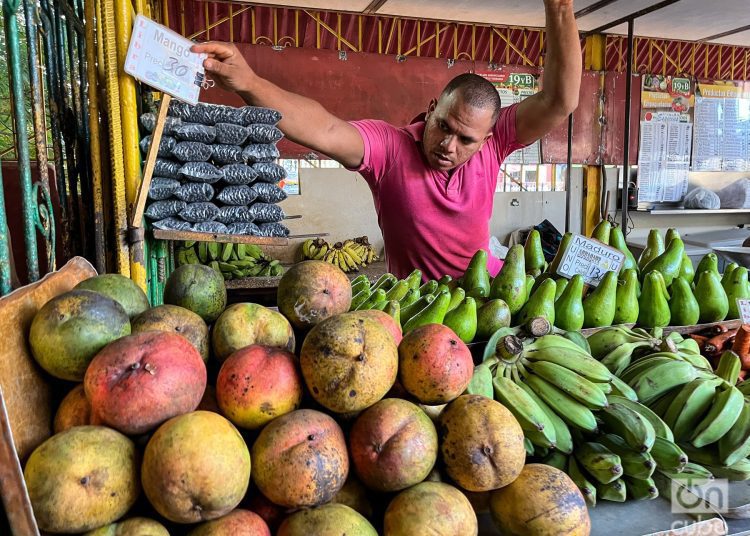By Center of Democracy in the Americas
- What role could U.S. actors play in overcoming the island’s current food crisis and supporting food sovereignty in Cuba?
U.S. actors engaged are just as important or more important than what they are specifically engaging in. Engagement with humility, respect, transparency, trust, and curiosity are key. Engagement on the intersection of climate, food, agriculture, and sustainable communities will be essential, and there is much we can learn from and support each other, in partnership for mutual learning and benefit. For example, there are many existing strategies used in agricultural and food systems to reduce GHG emissions and sequester carbon that are already implemented in Cuba but need more support. Many of these are rooted in traditional practices implemented globally on small to medium size farms (biodigesters, high levels of agrobiodiversity, low input systems, no till, localized food systems, other agroecological approaches, etc.). It will be important to help support Cubans to do more of what they are already doing well and make sure not to export models of potentially false solutions such as high capital high tech approaches that are not suited to the local context, that depend on volatile and ineffective carbon markets, or are part of a neoliberal model that benefits foreign corporations at the cost of local livelihoods, economies, and ecologies. Agroecology as a practice that builds resilience to climate change by both reducing GHG emissions and building adaptive capacity to respond to impacts, is a recognized approach to implement as part of the Nationally Determined Contributions of the Paris Agreement.
- Looking ahead, what are the priorities and goals for further strengthening U.S.-Cuba cooperation in sustainable food and farming systems initiatives? What areas would you like to see future collaboration and exchange in?
Given that there is so little cooperation happening right now, there is much opportunity in a wide range of topics where collaboration would benefit both countries. In the U.S. there is a strong movement pushing for more sustainable food systems and a recognition that the current food system is not working for the environment, for our economies, or our communities. My colleagues and I are always inspired by the social and ecological values of the moral economy embedded in Cuba’s agroecological forms of production. Implications of such values on building a more sustainable and equitable food system are already evident in the progress the Cuban food system has made over the past several decades. The potential for the full realization of such benefits, in part through social solidarity economy investments and networks and knowledge exchange between U.S. and Cuban food system actors, could be substantial.
Deeply connecting actors in both countries represents a unique opportunity for establishing a new kind of trade relationship. Instead of one that centers around commodity production, low wages, marginalized labor, high GHG emissions and damage to domestic food systems in both countries, there is an opportunity to pursue relations centered on principles of agroecology, cooperativism, and food sovereignty. For instance, Cuban cooperatives and U.S. cooperatives could exchange products that they cannot produce in their respective environments, or that are out-of-season. Tropical fruits could be sent to the U.S., and cold weather crops (grains and apples, broccoli) sent to Cuba without undermining existing industries in either country. Some Cuban growers have also identified “mercados solidarios” (markets based on solidarity) as a means to support agroecological efforts both in Cuba and the U.S. by directly connecting communities, cooperatives, investors and other actors with similar social and ecological principles. Can like-minded U.S. and Cuban counterparts forge and develop new models of trade under new economic rules? If there ever was an opportunity for innovative rules of capital and trade relations to be developed, it is today as industrial agriculture is in crisis globally, and climate change pushes us to adapt, requiring ever deeper transitions towards resilience.
Cuban researchers and farmers provide their U.S. counterparts opportunities to learn more about the many Cuban advances in biological pest management, pasture, and forage crops, the use of beneficial microorganisms, and many other social and ecological innovations. Cuba has rich experience in social methodologies for sharing agroecological knowledge. Notably, Cuba’s campesino a campesino methods have created farmer-to-farmer networks of solidarity and co-learning. The U.S., on the other hand, has extensive experience developing and accessing methods for distributing locally and agroecologically grown food products. Experiences with Food Hubs, Community Supported Agriculture (CSA), and consumer cooperatives could provide translatable models to Cuban efforts to relocalize and strengthen local food systems. As well as experience with food policy councils and regional food planning networks that provide models of participatory governance necessary for truly sustainable and resilient food systems. The U.S. can also collaborate with Cuba on developing infrastructure for processing, transport, and cold storage which would address the urgent issues with food waste. Cuba and the U.S. have so much to learn from each other, by isolating Cuba we are isolating ourselves from the opportunity to mutually learn and solve these challenges.
- Is there anything else you would like to share or think is important for the public to know?
It is urgent that we mobilize resources to support the expansion of those building blocks I mentioned above so that 30 years of work done by the Cuban people do not get swept away by the dominant agro-industrial model that the world knows needs to change in order to address the poly-crisis we live, including the climate crisis. One of the most important ways we as U.S. citizens can support the Cuban people is by being engaged in advocacy efforts to change U.S. policy which is hurting the Cuban people. Despite the challenges and limitations of the sanctions rules on engagement, there are still ways we can engage. Citizens and philanthropy are key for mobilizing resources and channeling them to the many innovative changemakers in Cuba.
Please be in touch if you would like to learn how you can help, margarita@vtcaribbean.org and visit our website www.caribbeanagroecology.org. And thanks to CDA for the opportunity to share our experiences and work in Cuba.
*The views and opinions expressed by the interviewees are their own and do not necessarily reflect the views or positions of CDA.
*This interview was originally published in two parts by the Center of Democracy in the Americas. It is reprinted with the express permission of its publishers. See part one and part two.










